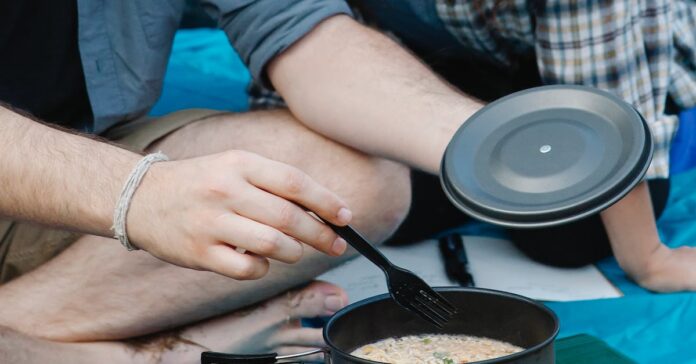Camping can be both the best time you ever have, or the worst. The difference can be the weather that happens while you camp, or how well prepared you are for it. To learn how to be as prepared as you can for camping, read on into the following paragraphs.
You don’t have to be a boy scout to be prepared, if you plan to go camping. One of the first rules is to be sure to tell somebody where you will be. If there isn’t an exact location to give, then give a general idea of major roads nearby or even GPS coordinates if you know them and give a timeframe of when you plan to return.
Water is critical for your survival when hiking in the backcountry. Carry water purification tablets with you or some sort of water filter that is capable of filtering out bacteria. There are many different kinds available at your local sporting goods store. Whenever you are looking for a water source, make sure the water is flowing; stagnant water can kill you if not treated properly.
When you are camping, a necessity for your gear is a survival knife. This is the most important part of your camping gear. Buy a high quality survival knife, not just the cheapest you can find, your life may depend on it. These knives are all very similar; they have a long blade serrated on one side and a hollow handle. Inside the handle you can carry fishing line, hooks, a compass, and matches as a small survival kit.
Those big, colorful plastic storage bins make excellent places to store and organize all of your camping gear. While at home, keep it in a closet or the garage and right before you leave for your camping trip, pop it in the trunk. It should keep everything air-tight, dry and easily accessible.
Camping is definitely a fun time, but there might also be uninvited guests at your campsite. Who are these guests? Bugs! This is their environment and they like camping, too. Make sure you have bugged repellent with you to tell them to stay at their own campsite or to go visit other campers who weren’t quite as prepared as you were.
Make sure that you avoid any venomous plants. A good way to do this is to stop at the ranger station and ask what kinds of poisonous plants are in the area so you can identify them if you come into contact with them on the trail. Never eat anything while hiking on the trail if you do not know it is edible.
Bring a hankerchief or a bandanna with you. You can use these as hand towels, cleanup towels, pot holders or anything you need cloth for. Because there are so many versatile uses for them, bringing one or two on each camping trip is a good idea.
Try to schedule activities for your children such as board games or card games. If you are deep in the woods, away from everything, they may get bored. Children may not be familiar with activities like pitching a tent or fishing. Allow them to practice these activities prior to going camping if they’re not that experienced with the outdoors.
It is important to have a flashlight when you camp, but make sure the batteries are fully charged. One way to be sure the batteries don’t accidentally drain on the journey is to put them into the flashlight backwards. That way if the switch is accidentally engaged, they stay charged. Plus, you know where the batteries are.
Camping is fun, and camping with kids can be even more fun, but certain precautions need to be made for these little campers. Take plenty of extra clothes for them, because they will get dirty and wet. It’s important they don’t stay in wet clothes, because it’s possible, it could result in hypothermia. This goes for adults, too.
Don’t forget the duct tape. It is nearly as useful while camping as it is around the house. You can use it to repair a hole in an air mattress. Use it to enclose a rip in a tent, sleeping bag or weather-proofing tarp you have laid down. It can be used on feet to help fight off blisters during long hikes. In a pinch, it can even substitute as a bandage.
Be mindful of the environment when you go camping. Whatever you carry into a campsite, make sure that you remove it when you leave. This will eliminate litter and protect the natural environment. Before leaving, the area you have inhabited should be as clean as you would want it if you were just arriving to camp there that day.
Weather can ruin a camping trip, but there is little you can do about it. Poor planning can also ruin your camping trip, but there is a great deal that you can do about that. Keep in mind all that you have read in this article so that you can be prepared for you next trip.


